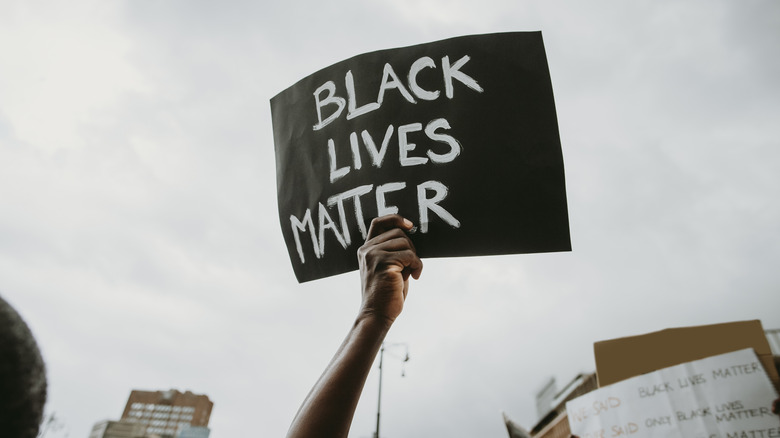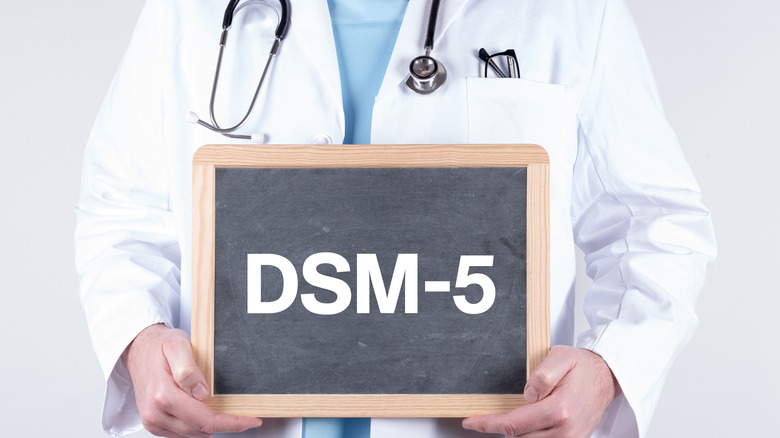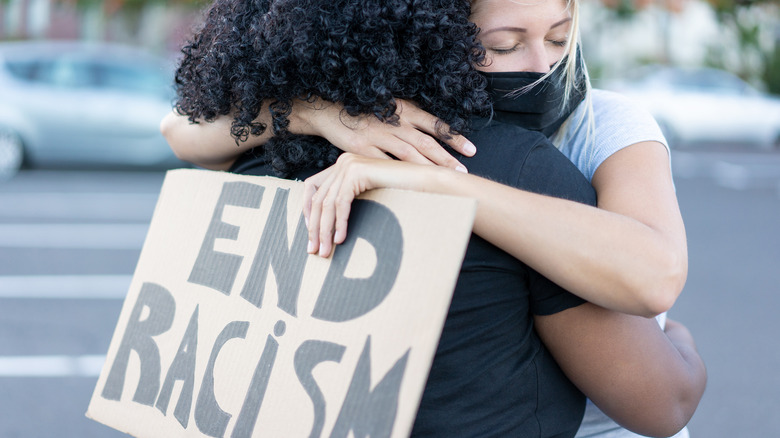Why A Group Of Black Psychiatrists Wanted Racism Defined As A Mental Disorder
In June 2022, Homeland Security issued a statement about the threat of domestic terrorism, especially groups that target racial and religious minorities (via Homeland Security). Last year, the FBI director stated that white supremacy in the United States is a bigger problem than jihadism, prompting a bill to address the rise in right-wing violence (via Congress). This increase in domestic terrorism and the high-profile murder of George Floyd have caused a renewed interest in the question of whether racism should be treated like a mental illness. In a clip from 1992 that has made its way around the web, Jane Elliot — who conducted a study in the 1970s during which she taught kindergarten-aged students to develop a prejudice based on eye color — announced on Oprah Winfrey's show that there is a problem with one's brain if they judge others by their skin color (via Vice).
Claiming a new mental illness, in general, incites debate, but this is especially true with an issue as politically barbed as racial prejudice. But this debate is hardly unique to our time. In 2002, Harvard scholar Alvin Poussaint published a study in the Western Journal of Medicine arguing that extreme racial prejudice is a symptom of psychotic disorders. This follows a conversation that began in the civil rights era, where a group of psychiatrists wanted to radically change the way we think about racism (via Vice).
Racism and the DSM
In the 1960s, the extreme violence against African Americans led activists to want racism to be defined as a mental health issue. This would have caused extreme racism to be treated like many other clinical conditions: with psychotherapy and even medication. The effect of this would have resulted in redefining racism so that it would be a problem of an individual's psychology rather than a societal issue at large (via Cambridge University Press).
Harvard psychiatrist Alvin Poussaint was one of the Black psychiatrists from 1969 who originally advocated for the American Psychological Association to include racism in the Diagnostic and Statistical Manual (DSM) — the book that practitioners use to describe and diagnose mental health conditions. Although the petition was rejected, Poussaint continued his advocacy, arguing in his 2002 study that (via Western Journal of Medicine), "To continue perceiving extreme racism as normative and not pathologic is to lend it legitimacy." So far, people with diagnosable conditions have not been treated specifically for any tendencies toward racism they may show, and some argue that treating it as a mental illness would only create more problems (via The Washington Post).
Should Racism be Considered a Mental Illness?
Though attempts have been made to explain racial prejudice as an individual pathology since the rise of Nazism, racism has, by and large, been defined as a sociopolitical problem. According to W. Carson Byrd and James M. Thomas of The Washington Post, pathologizing racism could have the following detrimental effects: shifting attention away from systemic issues (like police brutality) and making it harder for policymakers to address social inequalities. But Alvin Poussaint argued that pathologizing racism could prevent violent acts against people of color in the first place (via Western Journal of Medicine).
From a legal standpoint, however, adding racism to the DSM could have repercussions. In 1981, a white man was acquitted after developing paranoia about a Chinese neighbor and assaulting them. The defense used mental illness to get his acquittal, citing the man's neurosis as a motivator for the crime (via The Washington Post). It is worth asking: If Poussaint and other scholars get racism into the DSM, would it actually lead to undue tolerance for prejudice? While Poussaint continues to fight for his research, other scholars remain concerned that it would throw social factors by the wayside, per Cambridge University Press.
If you or a loved one has experienced a hate crime, contact the VictimConnect Hotline by phone at 1-855-4-VICTIM or by chat for more information or assistance in locating services to help. If you or a loved one are in immediate danger, call 911.


